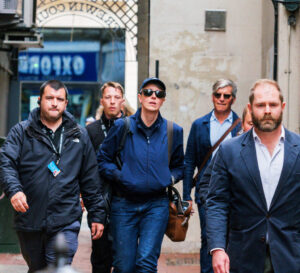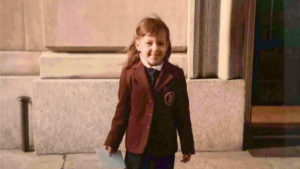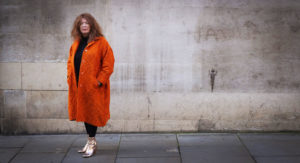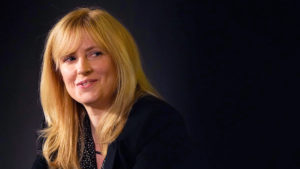For a quarter of a century, on and off, Melbourne’s “quality” daily newspaper The Age not only published my words — it was my intellectual home.
I had joined the paper’s staff around the turn of the century as a trainee journalist, progressing to social affairs reporter, senior writer, leader writer and, most recently, weekly columnist. For the most part, my views aligned with the paper’s superego, which fluctuates between soft Left and small “l” liberal. And there was always space for dissent, even when my opinions sharply diverged from The Age consensus — more on that soon.
About two years ago, my harmonious relationship with the paper began to deteriorate. The tension reached its climax last week when the editor, Patrick Elligett, sacked me as a columnist. The breakdown in trust was down to one issue: gender-identity politics, the trans debate — or severe lack thereof.
My dismissal was linked to a feature I wrote on youth gender transition that had been commissioned by a previous editor, Gay Alcorn, and which Elligett had refused to run. In response, I told Elligett that I intended to publish the piece on my new Substack and would disclose that he rejected it. He looked uncomfortable, but said The Age would take it on the chin.
And so, early this month I published the feature, announcing to the world that if they wanted to know why the piece was rejected, they would have to ask Elligett himself. A standing army of gender sceptics on Twitter did just that, under the hashtag “gutless” . This can’t have been pleasant for Elligett. But he attributed the sacking to another remark in my launch statement where I flagged that in future posts I’d be writing on gender-identity politics more broadly, “without the copy being rendered unreadable by a committee of woke journalists redacting words they deem incendiary, such as ‘male’”. Elligett responded: “Obviously we can’t have our columnists publicly disparaging the publication like that so we won’t be commissioning further columns from you.”
In the piece he refused to publish, I discussed the growing debate around “affirming” care for children and teens in gender distress, and the use of puberty blockers and cross-sex hormones. While the controversy attracts regular coverage in Australia’s Murdoch-owned press, it remains taboo in the progressive media, where the “no-debate”, “the science is settled” mantras are consistently reinforced by stories of young people blossoming post-transition. The worst offender is the ABC, Australia’s equivalent of the BBC. The public broadcaster has even been rebuked by its own Media Watch programme for failing to report on the closure of the NHS’s scandal-hit gender clinic for children in England and Wales, the Tavistock; and for its partnership with Australia’s Stonewall equivalent, Acon, on the grounds it could lead to “perceptions of bias in coverage, or bias itself”.
Yet here’s the interesting part: Elligett said very little to me about my piece, other than that it was “good”. We had discussed it in late March, about a fortnight after Melbourne’s Let Women Speak rally, which was gatecrashed by neo-Nazis and which I had attended out of professional curiosity. The problem, he said, was not the piece, but its author: me.
He said I had nailed my colours to the mast on trans issues, so my byline would create a perception of bias. I said I had no firm view on paediatric transition. (You don’t have to believe in unicorns to see the affirmation model as an attempt to save kids from life-crippling distress and stigma.) He said that, nonetheless, publishing the piece under my name would damage the reputation of “the masthead”.
Let me attempt a translation: I had been pegged as a “Terf”, a trans-exclusionary radical feminist, a category into which many a reality-based woman, or indeed man, self-identifies. And this meant I was considered partisan where a veneer of neutrality was required.
I’m sad about what’s happened; as I know Elligett is, too. In writing this piece, I’m not seeking vengeance or vindication. Nor is this a “woe-is-me” story. On the contrary: I’m hugely grateful to the people I worked with. They saved me from howlers, and fixed my sloppy prose and wobbly reasoning more times than I care to admit.
But I feel a sense of obligation to commit to the historical record yet another account of a newsroom buckling under the challenge of gender-identity ideology: the belief system that deems “male” and “female” as more a state of mind than of body, and casts even the most gentle questioning of the doctrine tantamount to bigotry.
In this, I can’t help but be reminded of Hadley Freeman’s fate, save that she left The Guardian voluntarily. She started there at around the same time I started at The Age. Like Freeman, I’m a veteran Left-leaning campaigner for the rights of sexual minorities. Like Freeman, the main tension I found myself navigating in my early years in the newsroom involved Israel. Like her, I’m Jewish and a Zionist. As a leader writer, I was sometimes asked if I was sure I could write “objectively” on Israel and Palestine. As with Freeman, the odd colleague would lecture me about what I should and should not consider to be antisemitism.
But as a columnist, I found no issue off-limits. Sure, sometimes an editor would disagree with me. Some had little appetite for edgy, post-9/11 critiques of the Left’s accommodation of political Islam. And most merely tolerated my regular meltdowns about government funding of private schools; they didn’t relish the blowback from the well-resourced private school lobby, or, indeed, from the great many Age readers who sent their kids to posh schools. I’m also yet to live down effectively backing the US invasion of Iraq long after the original liberal hawks had issued their mea culpas. Still, in no universe could I have predicted that ground zero of the culture wars would be the definition of a woman as an adult human female.
My first foray into the transgender debate was in February 2021 when Readings, Australia’s largest independent bookseller, apologised for having hosted an event three years earlier with Julie Bindel, the British radical feminist. This was a post-facto cancellation. In my column, I affirmed both sides of the discussion. “Each is mighty and indivisible,” I wrote. I saw the fight between the subjective (gender identity) and the objective (embodied sex) — a bit like how Amos Oz saw the fight between Israel and the Palestinians as a war between “two rights”.
My piece was well-received, but mostly ignored. Recently on Twitter I saw someone cite the column as evidence I’d once belonged to the #BeKind brigade, which was a bit harsh. I still subscribe to the views I expressed; to even speak of a conflict of rights is to acknowledge there are, in fact, two legitimate sides. I not only accept that trans people “exist”, but also that their right to dignity and equal opportunity requires the rest of us to affirm their identities to the greatest possible extent, at least in so far as the affirmation doesn’t undermine others’ sex-based rights. When these two rights conflict, it’s surely the job of governments to ethically adjudicate between the competing interests.
But gradually it dawned on me that Labor governments around Australia weren’t just failing to adjudicate between conflicting rights — they proudly disavowed a conflict even existed. “Anyone who identifies as a woman is a woman,” said Queensland’s Minister for Women and then Attorney General, in May, to the widespread indifference of the media.
Then, a year ago, Rohan Leppert, a senior member of the Victorian Greens, inadvertently laid bare the serious ructions in his party over trans issues. Members were calling for Leppert to be disciplined after comments he made in a private Facebook group came to light; shockingly reasonable comments, needless to say, about the affirmative care model, the state’s sledgehammer conversion-therapy laws and the conflict over single-sex spaces. Should I have held back?
I filed a column in which I defended Leppert’s views and his right to express them. The editing process was hell. I had referred to the pressure on women to cede their spaces to “males who have not medically transitioned”. Intense pressure from an unknown number of journalists further down the food chain saw the word “males” become “people” in the final copy. Hence the crack that got me sacked.
This was my first encounter with the self-appointed queer caucus. As to how many journalists sit on it, I’ve heard conflicting accounts. Less than a handful of zealots. Everyone aged under 30. Half the newsroom, when putsch comes to shove. The article ran under the headline “Trans rights shouldn’t automatically trump the rights of other groups”. This one got noticed.
The response to the piece was overwhelmingly rapturous, if only for the sheer relief that a Lefty journalist was saying the usually unsayable. But on Twitter, transactivists and their allies made chopped liver of me. I had interviewed two of these activists for my as-yet-unpublished paediatric transition story. They redacted their interviews, claiming — falsely — that I had deceived them about the story’s angle. (I would later learn that two female candidates for the Animal Justice Party in Australia’s upcoming federal election were ordered to undergo re-education after sharing or “liking” the column on social media. They resigned instead.)
A formal complaint was made about the piece to the industry body, the Press Council. It’s a frequent tactic of the trans lobby, aimed at keeping the progressive media on message. By contrast, it isn’t too exercised about Sky News and the Murdoch empire running “anti-trans” stories; in fact, such coverage helps them deter principled critics of the transactivist agenda who fear playing into the hands of “the Right”.
The Age began desperately hawking space on its opinion page for a “pro-trans” piece to “balance” mine. The transactivists refused: I was beyond the pale, too hateful to be savaged with intellectual argument. Ultimately, the takedown fell to the “Victorian Commissioner for LGBTIQ+ Communities”, in his words, “a young, queer Wiradjuri cis-man”. He accused me of creating a false divide “between women’s rights and the rights of trans people”, but didn’t explain why the divide was false. Nor did he address the concerns of “L”s within his remit who believe he’s sold out their interests to the “T”s.
In August, I learned that a detransitioner in Sydney — who had had testosterone treatment, as well as a mastectomy and hysterectomy before re-identifying with her birth sex — was suing her psychiatrist for negligence. The Age and stablemate The Sydney Morning Herald were keen on the story. Once again, the editing process was hell. This time, transactivist talking points appeared suddenly in my copy: “Trans groups say that the highlighting of those who de-transition is part of a campaign by anti-trans activists to de-legitimise gender dysphoria.”
Hilariously, they couldn’t even get their propaganda talking points right. Almost no one denies that gender dysphoria is a thing; they had meant to say “de-legitimise trans identity”. My critics were themselves trying to de-legitimise a straightforward report about a legal case, not to mention the testimony of a traumatised woman.
After I pointed this out, the lines were removed and the story ran on the front page. The following day, the mood in the newsroom was described to me as “edgy”. The day after that, the paper published a letter to the editor accusing me of “transphobic rhetoric.” This was a bit much. It was one thing to be called a transphobe on Twitter; quite another to read the accusation in my own paper. I raised the matter with the editor, who apologised, citing a breakdown in internal processes.
Before learning of the detransitioner’s case, I’d filed an entertaining column about Scotland appointing a bloke as its inaugural “period dignity officer”, his stated ambition to make menstrual products available to “anyone of any gender”. The column, being trans-adjacent, was spiked. I was told I couldn’t violate the church-and-state divide between commentary and reporting; I had started reporting on trans issues so now I couldn’t commentate on them.
The editors were, in part, trying to save me from myself. I was told they didn’t want me to end up “a Suzanne Moore” — a reference to The Guardian columnist martyred after her colleagues waged a campaign against “transphobic” content. And yet, just as The Guardian had done, The Age invited an LGBTQI+ organisation to address the newsroom about avoiding “harm” in their reporting on trans issues.
I went on sulk leave.
On my return, by which time Elligett had taken over as editor, I found the de facto gag order still in force. The state of Queensland was ushering through Parliament a gender self-ID bill similar to Scotland’s Gender Recognition Act, at roughly the same time that a doomed Nicola Sturgeon was tying herself in knots over whether a two-time trans-identified rapist — initially housed in the female prison estate, post-conviction — was “a woman”. (The bill was passed last week to the usual triumphal reporting.)
Similar legislation. Identical propaganda lines. And here, also, violent sex offenders were being sent to female prisons. I was told no. There was no “news trigger”.
But the mother of all news triggers came in March, when Kellie-Jay Keen-Minshull, aka Posie Parker, the British women’s rights campaigner widely credited for popularising the term “adult human female” to define a woman, staged a Let Women Speak rally in Melbourne
I was — still am — looking to write a book on gender-identity politics in Australia. I thought the rally might yield a dynamic narrative, what we journalists call “colour”. I got colour all right: armed and mounted police several columns deep, two frontlines of counter-protestors of varying and bewildering political tendencies, and neo-Nazi gatecrashers performing a Sieg Heil on the steps of Parliament.
The Age published a very fair report in the immediate aftermath. But among the newsroom editors, a clear “line” took root: Parker was clearly linked with “far-Right” groups — the black-clad neo-Nazis had turned up to “protect” her. Never mind that in the week before the rally, far-Left groups had plastered the city with posters urging the comrades to turn up and fight the “far-Right”. Never mind that such rhetoric lures neo-Nazis to the scene just as flies are lured to shit.
Having been at the scene of a huge story, I pushed to write an op-ed on the rally. I explained to the editors that I was incensed at the response of Victorian Premier Daniel Andrews, whose pro-trans government was the primary target of the protestors’ anger. The women who came to speak came from all walks of life: Christian conservatives, butch dykes, Jewish Leftists, disaffected Greens, health workers, women in hijab.
But in the rally’s aftermath, Andrews tweeted: “Anti-trans activists gathered to spread hate. And on the steps of our Parliament, some of them performed a Nazi salute.” I told the day’s op-ed editor that, in saying this, Andrews had at best slurred the women as hateful bigots; at worst, he’d conflated them with the neo-Nazis. “Well, that’s your interpretation,” the editor responded.
Frankly, I’m happy the column didn’t run: the pressure to describe Parker as associated with the “far-Right” strained the logic and the tone. (And, oh, it also happened to be wrong.) The piece wasn’t good enough, I was told. There were too many holes. The timing was wrong. I had glossed over “the Nazis’” appearance. “And then,” the editor said, “you have these… paragraphs of Terf rhetoric.” I think we both knew there would be no coming back from that moment.
The shockwaves from the rally were felt in the Liberal Party, the Greens and Melbourne University, bringing repercussions for many of the women who had attended and, I’m sure, for plenty who didn’t. By the time Parker arrived in Auckland, the ugly rest is history: her dousing in tomato juice, the slack policing and crowd surge, a woman in her 70s punched in the face. The placards reading “Suck My Dick” and “Get off our land, CUNT!” This — apparently — is what progressivism looks like in the 21st century.
After Elligett said he wouldn’t run my piece on paediatric transition, it became clear that I could neither report nor commentate on the trans issue, even as it made headline news day after day. When Barry Humphries died, for instance, I was told I was allowed to write about his cancel-culture controversy with the Melbourne Comedy Festival — so long as I didn’t focus on the anti-trans comments that had prompted his cancellation.
In the end, like Freeman, I felt I could no longer write about anything that viscerally mattered to me. Hoping against hope, I pitched a column that would advocate for nationalising the education system. That weekend, half the Saturday magazine was a paid advertisement for the private school sector.
My mood darkened. I went on sulk leave. Indefinitely, as it turns out.
My last column for the paper was pegged to Mother’s Day. It tackled the female body and ageing, the intergenerational feminist struggle. I wrote about Victoria Smith’s book Hags: The Demonisation of Middle-Aged Women, and how it had “radicalised” me. Smith speaks for us middle-aged Gen Xers; how it’s now our turn to wear the age-old slur of “hag”, “witch”, or a contemporary variant such as “Karen.” There’s another slur I could have used, one that Smith writes about at length in her book: “Terf.” But I knew I had to leave that word out.
Disclaimer
Some of the posts we share are controversial and we do not necessarily agree with them in the whole extend. Sometimes we agree with the content or part of it but we do not agree with the narration or language. Nevertheless we find them somehow interesting, valuable and/or informative or we share them, because we strongly believe in freedom of speech, free press and journalism. We strongly encourage you to have a critical approach to all the content, do your own research and analysis to build your own opinion.
We would be glad to have your feedback.
Source: UnHerd Read the original article here: https://unherd.com/





